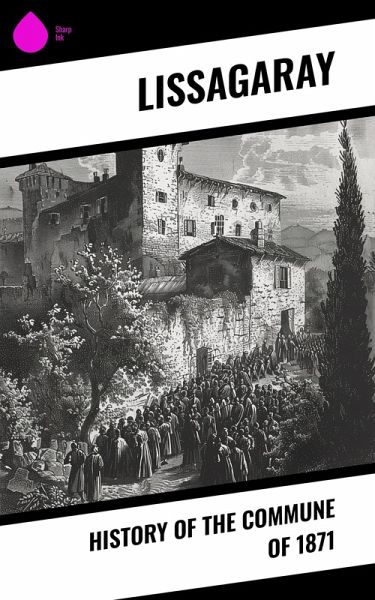
History of the Commune of 1871 (eBook, ePUB)
Versandkostenfrei!
Sofort per Download lieferbar
2,04 €
inkl. MwSt.
Weitere Ausgaben:

PAYBACK Punkte
0 °P sammeln!
In "History of the Commune of 1871," Lissagaray presents a meticulously detailed account of the Paris Commune, a radical socialist and revolutionary government that briefly ruled Paris in the wake of the Franco-Prussian War. Written in a narrative style that combines vivid descriptions with critical analysis, Lissagaray contextualizes the Commune within the broader spectrum of 19th-century political upheaval. This work not only recounts the events of the Commune but also explores its ideological underpinnings and the social tensions that led to its rise and fall, positioning it as a pivotal mo...
In "History of the Commune of 1871," Lissagaray presents a meticulously detailed account of the Paris Commune, a radical socialist and revolutionary government that briefly ruled Paris in the wake of the Franco-Prussian War. Written in a narrative style that combines vivid descriptions with critical analysis, Lissagaray contextualizes the Commune within the broader spectrum of 19th-century political upheaval. This work not only recounts the events of the Commune but also explores its ideological underpinnings and the social tensions that led to its rise and fall, positioning it as a pivotal moment in the struggle for workers' rights and social justice. As a journalist and eyewitness to the events, Lissagaray's perspective is deeply informed by his own experiences during the Commune, in which he played an active role. His sympathies lie with the Communards, and his commitment to chronicling their struggle reveals both a historical urgency and a passion for social reform. Lissagaray's insights are enriched by his comprehensive understanding of French revolutionary history, providing readers with a unique lens through which to view a moment that would significantly influence future socialist movements. This book is a vital read for anyone interested in revolutionary history, social justice, or the evolution of Marxist thought. Lissagaray's compelling narrative and his firsthand perspective invite readers not only to understand the events of 1871 but also to reflect on their relevance to contemporary struggles for equality and democracy.
Dieser Download kann aus rechtlichen Gründen nur mit Rechnungsadresse in A, B, BG, CY, CZ, D, DK, EW, E, FIN, F, GR, HR, H, IRL, I, LT, L, LR, M, NL, PL, P, R, S, SLO, SK ausgeliefert werden.













